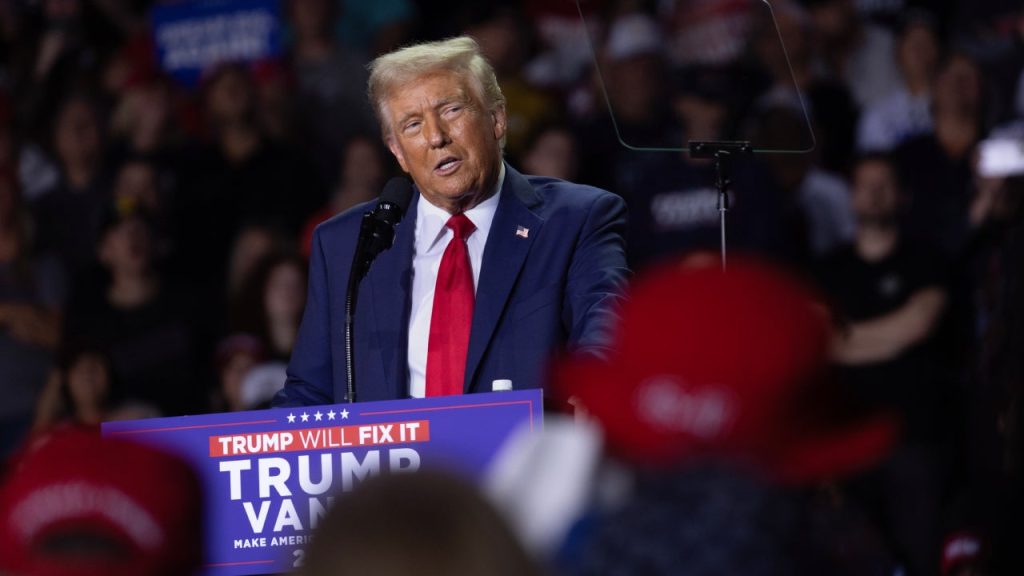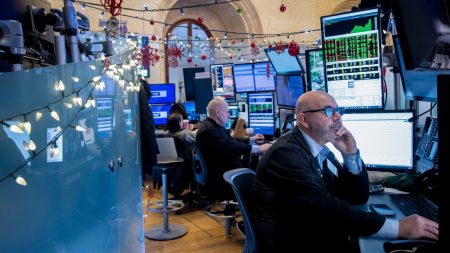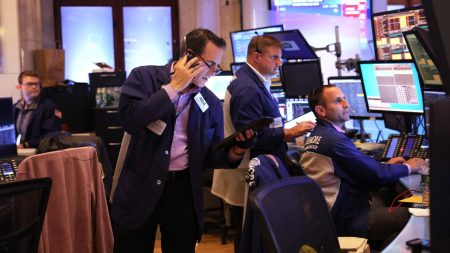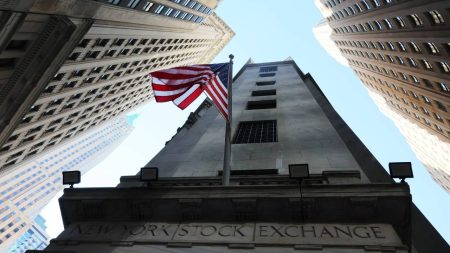The election of Donald Trump as the 47th president of the United States is the latest geopolitical event investors have faced in recent years, alongside others such as the attempted assassination of Trump earlier this year, Russia’s invasion of Ukraine and the ongoing Israel-Hamas war. It’s well-known that events like these can have an impact on financial markets, but how and why?
Here’s how geopolitical events impact the stock market and how investors can protect themselves from the risks.
How geopolitical events can impact the stock market
Geopolitical events, such as elections, wars, assassinations and terrorist attacks, can significantly impact stock market performance across various sectors. This influence typically stems from the uncertainty these events introduce into the global economic environment. For instance, elections can generate market volatility due to uncertainties about future government policies that could influence economic growth.
All three major indexes rose sharply following Trump’s election this week meanwhile Bitcoin hit a new record high, treasury yields spiked, bond prices fell and the dollar is up. Industries that may benefit from Trump’s economic policies were also up, such as Tesla, banking, smaller companies and private prison operators.
Elections have a particular way of spurring or slowing stock market activity as candidates’ proposals drive investor and consumer expectations about economic growth.
Similarly, geopolitical tensions and disputes can disrupt international relations and economic partnerships, leading to market uncertainty and volatility. The stock market’s initial response to these events is often to decline, as investors deal with fear and work to understand how an event may impact future economic growth. Over time, the impact of geopolitical events is typically limited, with other variables such as corporate earnings growth and the level of interest rates playing a larger role in determining market returns.
It’s also worth noting that geopolitical events are just one variable that may impact the stock market on a given day. At any given time, market participants are weighing many different variables, so it’s not always clear how much of a market move was due to a specific geopolitical event.
Notable geopolitical events and their stock market impact
Historical examples demonstrate that many geopolitical events have significant short-term impacts on the stock market, while their long-term effects vary based on the nature and severity of the event. Here’s how the S&P 500 performed after notable events of the past century.
| Geopolitical event | Date | One day | Total drawdown | Bottom | Recovery |
|---|---|---|---|---|---|
| Pearl Harbor attack | 12/7/1941 | -3.8% | -19.8% | 143 days | 307 days |
| JFK assassination | 11/22/1963 | -2.8% | -2.8% | 1 day | 1 day |
| Iraq’s invasion of Kuwait | 8/2/1990 | -1.1% | -16.9% | 71 days | 189 days |
| September 11th attacks | 9/11/2001 | -4.9% | -11.6% | 11 days | 31 days |
| London bombing | 7/5/2005 | 0.9% | 0.0% | 1 day | 4 days |
| Boston Marathon bombing | 4/15/2013 | -2.3% | -3.0% | 4 days | 15 days |
| Russia-Ukraine War | 2/17/2022 | -2.1% | -6.8% | 13 days | 23 days |
| Israel-Hamas War | 10/9/2023 | 0.3% | -4.5% | 14 days | 19 days |
| Source: LPL Financial | |||||
You’ll notice that the initial stock market response is often sharply lower when an unexpected geopolitical event occurs. Sometimes the decline can last for a few days or weeks as the market digests the risks. However, over the long term, the stock market tends to recover and often reaches new highs in the years after the event.
While rare, there have been times in history when financial markets closed entirely in response to geopolitical events. Stock and bond markets closed for months in 1914 after the start of World War I, and markets closed for three days following the Sept. 11 terrorist attacks in 2001.
How to protect your portfolio from geopolitical risks
Navigating the turbulent waters of geopolitical events and their potential impact on your portfolio can feel daunting. However, armed with the right strategies, you can guard your investments against these risks and market volatility. Here are some key steps to consider:
- Fight the urge to sell: Temporary shocks caused by geopolitical events can create a sense of panic. However, it’s crucial not to hastily sell assets such as stocks. History suggests that the impact of international conflicts on markets is usually short-lived, and markets tend to recover within months following a crisis.
- Diversify your portfolio: Diversification, investing across different asset classes, sectors, and geographies, is a proven strategy to buffer against market downturns. By spreading your investments, you reduce the risk and dependency on any single market dynamic.
- Maintain a long-term focus: Despite short-term market volatility due to geopolitical events, maintaining a focus on your long-term investment goals is essential. This perspective can help you avoid locking in temporary losses by selling during times of uncertainty.
While no strategy can entirely eliminate the risks associated with geopolitical events, these techniques can help manage and mitigate their potential negative effects on investments. Remember, every investor’s situation is unique, so tailor these strategies to fit your specific needs and financial goals.
— Bankrate’s Logan Jacoby contributed to an update.
Editorial Disclaimer: All investors are advised to conduct their own independent research into investment strategies before making an investment decision. In addition, investors are advised that past investment product performance is no guarantee of future price appreciation.
Read the full article here









